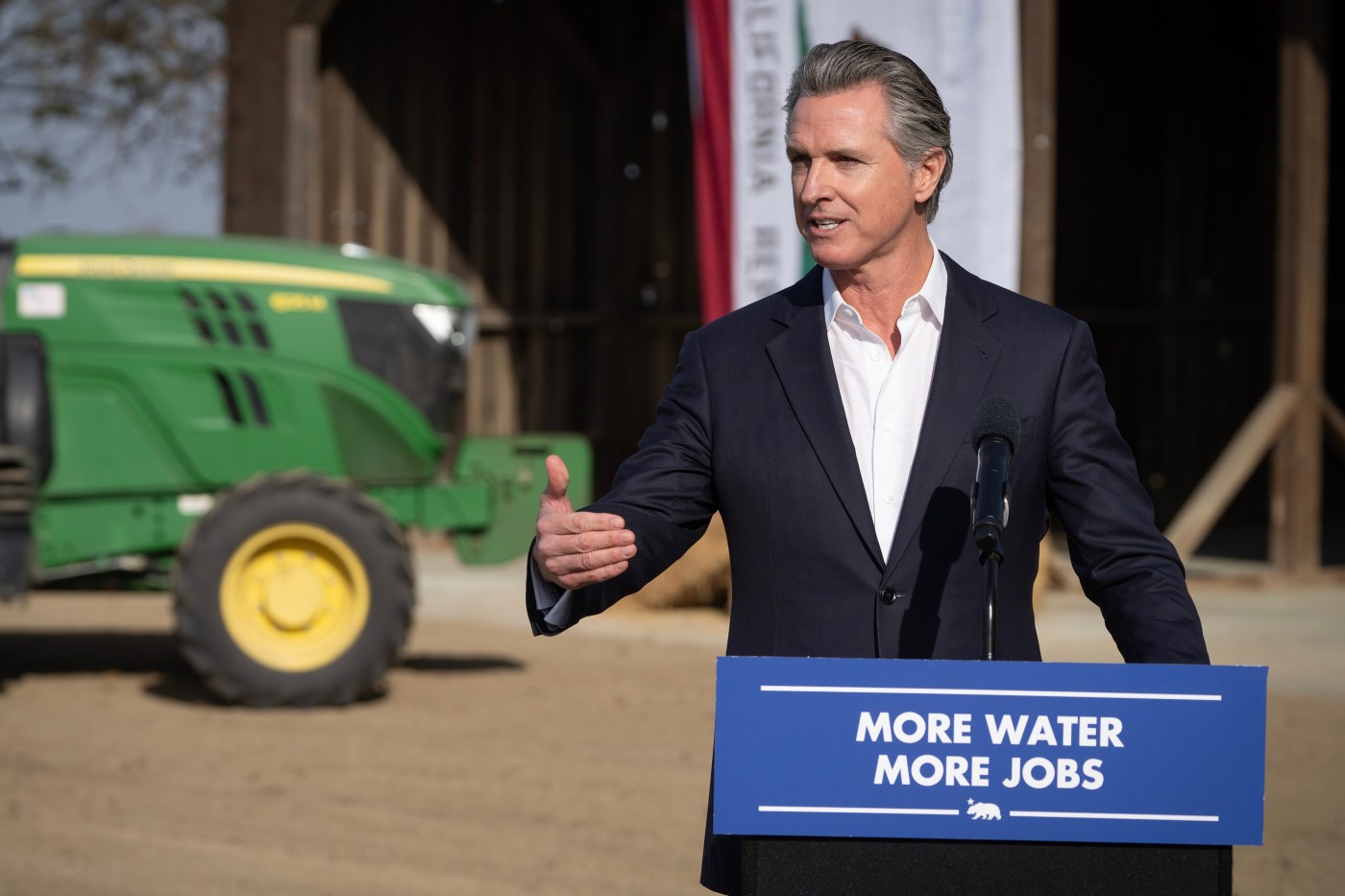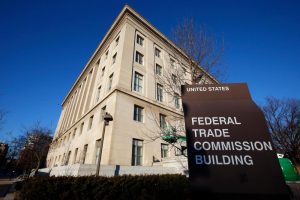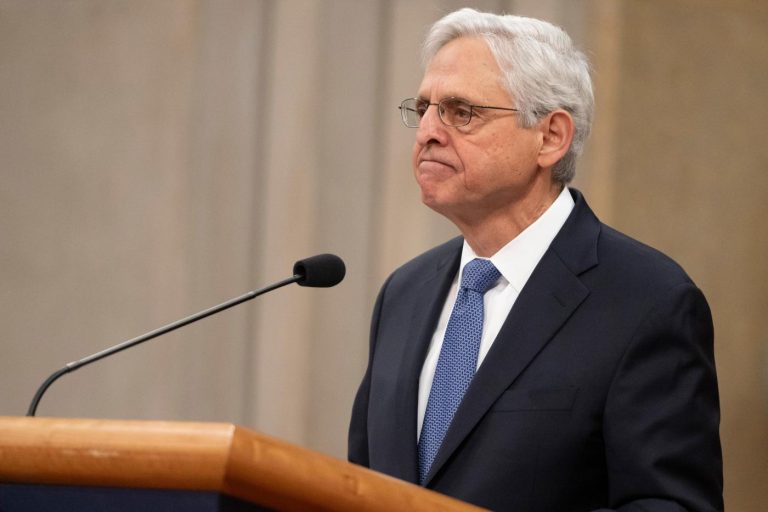Gov. Gavin Newsom on Tuesday reaffirmed his support for building Sites Reservoir, a proposed $4.5 billion project that would be the largest new reservoir constructed in California in 50 years, as a way for cities and farms to better prepare for droughts made worse by the warming climate.
“We are going to continue to do everything we can to put the pressure on to get this project done,” Newsom said.
“We are going to continue to advocate for federal resources,” he added. “Donald Trump, this is your kind of project.”
Sites would be California’s eighth largest reservoir, a 13-mile-long off-stream lake that would divert flows from the Sacramento River during wet winters to provide water to 500,000 acres of Central Valley farmlands, and 24 million people, including residents of Santa Clara County, parts of the East Bay and Los Angeles.
“We have got to get out of our own damn way,” Newsom said, criticizing lawsuits and red tape that have slowed or blocked construction of other reservoirs in California. “The world we invented is competing against us. We are consumed by process. We are paralyzed by process in litigation and NIMBYism, and people frankly taking advantage of the public. And as a consequence we fall behind.”
The project is supported by President Biden, farm organizations, labor unions and about 20 water agencies, including the Santa Clara Valley Water District in San Jose, Zone 7 Water Agency in Livermore, and the Metropolitan Water District in Los Angeles, all of which are partners and would receive water from it.
Newsom spoke Tuesday at Davis Ranches, a 5,300-acre farm in Colusa County. He suggested that state money earmarked to expand Los Vaqueros Reservoir in Contra Costa County could be shifted instead now to Sites.
In November, in a stunning setback for efforts to expand water storage in Northern California, the Contra Costa Water District cancelled a $1.5 billion plan to enlarge Los Vaqueros Reservoir near Brentwood.
After years of planning and talks, Bay Area water agencies, including the East Bay Municipal Utility District and the Santa Clara Valley Water District, could not agree with Contra Costa on who would pay how much, what amount of water each would receive, and who would be on the hook for cost overruns.
Los Vaqueros was promised $477 million in state funding under Proposition 1, a water bond approved by voters in 2014. The Contra Costa Water District spent $24 million on planning, studies, engineering and other costs. It notified the California Water Commission in November that it will not need the remaining $453 million, said Jennifer Allen, a spokeswoman for the Contra Costa Water District.
The Sites project similarly received a commitment for $875 million in Proposition 1 money from the California Water Commission.
“For those who are wondering what happened to Los Vaqueros, and are those dollars available? Yes they are,” Newsom said. “But they will go through a process and we hope Sites will apply to see if they can get some of the money.”
Sites Reservoir is opposed by the Sierra Club, Friends of the River and other environmental groups who say filling it would divert too much water from the Sacramento River, hurting endangered salmon, steelhead and Delta smelt.
On Tuesday, Ron Stork, a senior policy analyst for Friends of the River, said the unused Los Vaqueros money should not be spent on Sites or other water storage projects. Expanding conservation, recycled water and stormwater capture would be more cost-effective and less environmentally harmful, he said.
“That money would be better spent on other priorities,” Stork said.
Jerry Brown, executive director of the Sites Project Authority, said his agency is interested in the Los Vaqueros money. The Sites project has completed its environmental reports, won two lawsuits filed by environmental groups, was invited by the E.P.A. to apply for a $2 billion loan, and has one major hurdle left — securing water rights from the State Water Resources Control Board.
Brown, who is not related to the former governor, said the project is on track to break ground in 2026 and finish by 2032.
“I’m feeling good about it,” he said. “We have momentum, and this will benefit all Californians.”
A drone view of the landscape near unincorporated Sites, Calif., on Thursday, March 14, 2024. A proposed 1.5 million-acre-foot reservoir here would be California’s eighth largest at 13-miles long and would submerge some of the area shown. (Jane Tyska/Bay Area News Group)












